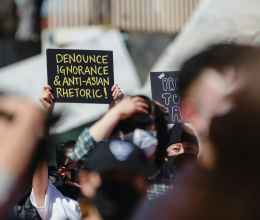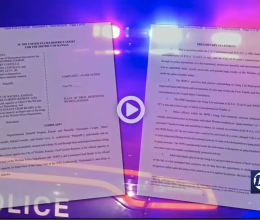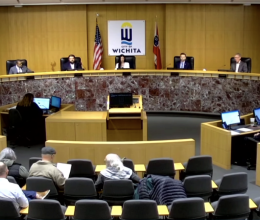
Donald L. Hollowell served King and many other civil rights icons with startling courage
A John F. Kennedy documentary that aired recently referenced efforts to free the Rev. Martin Luther King, Jr. from a brutal Geogia prison back in 1960, but didn’t mention the man escorting King out of the facility, Lawyer Don Hollowell.
Coretta Scott King had requested help from the Kennedy’s to free her husband from a four-month, hard-labor sentence in Reidsville State Prison. King’s crime? Participating in a sit-in.
There was a lot of handwringing and talk about political courage in the Kennedy’s camp. They needed the Black vote to ascend to the presidency but at the same time, the candidate feared alienating white voters. We need Hollowell’s no nonsense courage today.
Hollowell, originally from Wichita, had been defending King against sit-in charges filed when King protested at an Atlanta department store. Prosecutors dropped those charges, but they subsequently charged King with violating probation and sent him to Reidsville in 1960.
King often found himself the target of prosecutorial power and the many creative ways prosecutors filed charges not necessarily because King had broken the law, but because King challenged racial norms. Prosecutors, then and now, wield enormous power.
Hollowell represented many civil rights icons including Julian Bond and John Lewis. Hollowell brought the case that got Journalist Charlayne Hunter Gault and classmate Hamilton Holmes who’d go on to become a doctor, admitted to the University of Georgia.
Hollowell regularly faced racist judges and juries in the darkest most dangerous reaches of rural Dixie and to the astonishment of many, managed to win more than his share of such cases. People used to prop ladders on the windows of old court houses to watch him work.
By 1964, with Hollowell seeking a judge seat in Fulton County Superior Court, it was King who gifted him some SCLC staffers to help his campaign, which was unsuccessful.
But under President Lyndon B. Johnson’s administration, Hollowell became the first Black man to lead the southeastern regional office for the Equal Employment Opportunity Commission, which he directed from 1966 to 1976. Hollowell served as president of the Voter Education Project from 1971 to 1986 and was the recipient of countless awards, including the NAACP Legal Defense and Educational Fund’s Lawyer of the Year (1965), and the Civil Liberties Award from the American Civil Liberties Union (1967). In 2002, he received an honorary Doctor of Laws degree from the University of Georgia, the same university he had helped to desegregate 40 years earlier.
Hollowell died in 2004 but not before integrating Atlanta schools, colleges, and public transit.
At some point, we’ll need to stop living on his courage, and find our own. And real courage, not the political kind.
Related content


DOJ report: Wichita public schools disproportionally discipline...
July 3, 2024
More than dirt; AAPI racism in recent Kansas bill
May 17, 2024
KHP ordered to pay plaintiffs $2.3 million for unconstitutional ...
April 15, 2024
Settlement changing criteria, adding oversight to Wichita Police...
April 9, 2024
Council approves Wichita Police Department gang list settlement
April 9, 2024
Wichita pays $625K to settle lawsuit over police use of...
April 9, 2024
Council approves Wichita Police Department gang list settlement
April 9, 2024